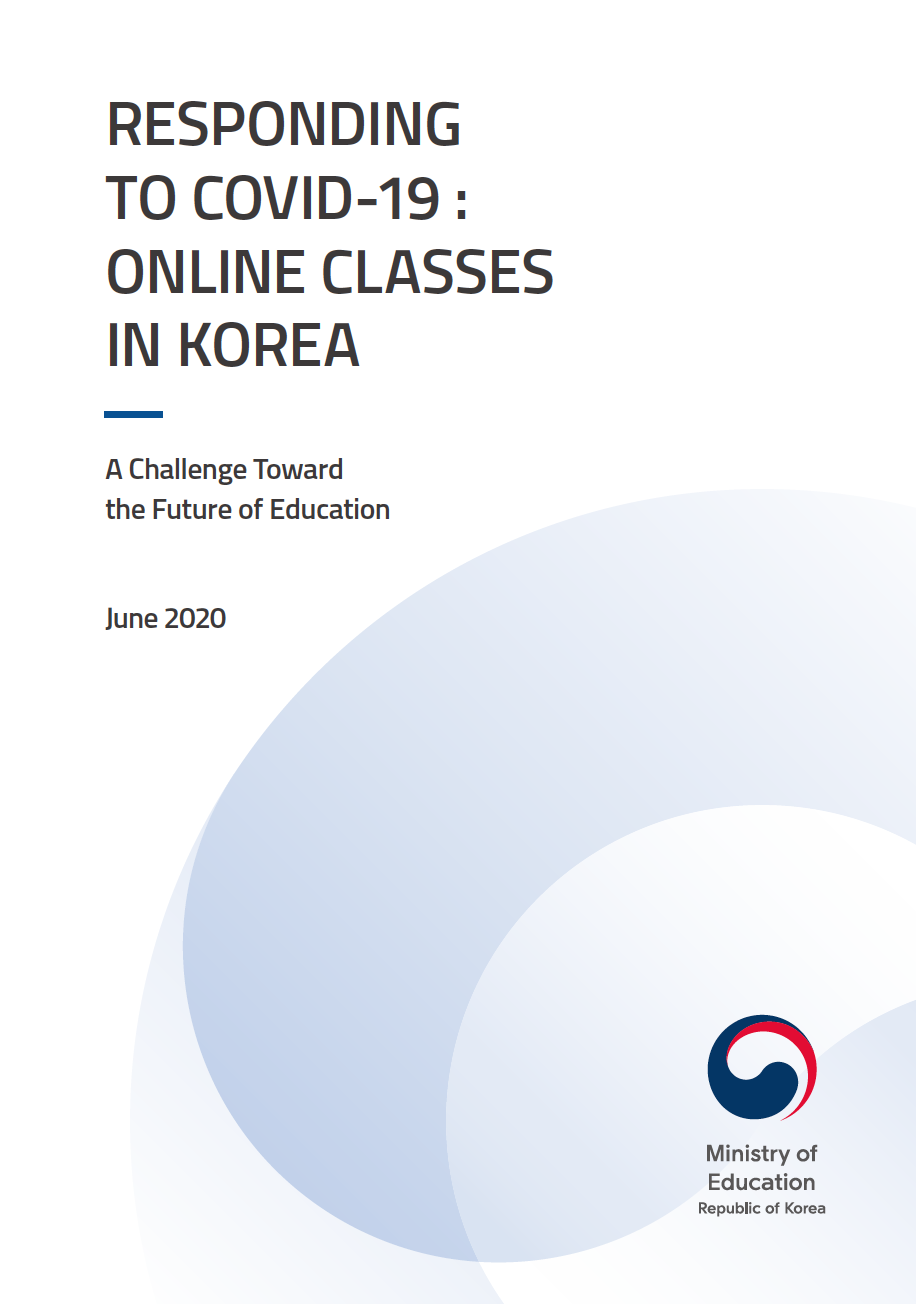Protection, Equity, & Well-being
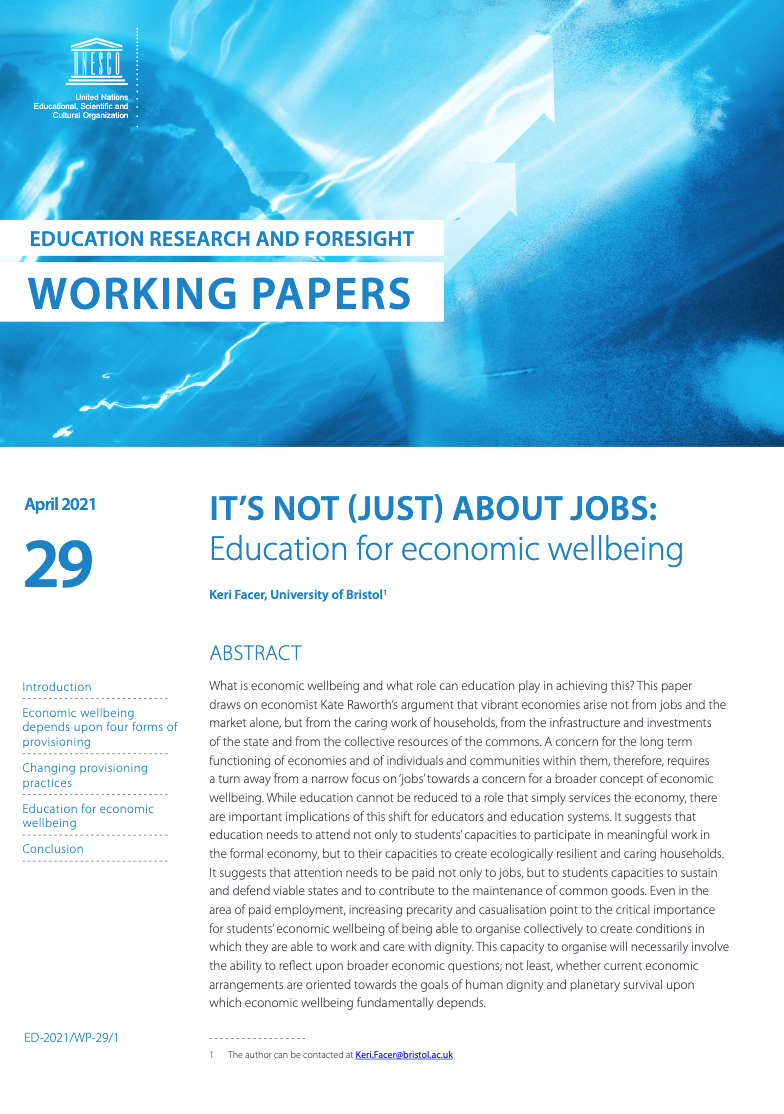
Author: UNESCO
Audience: Policymakers
Languages: English
Geographical Scope: Regional
Education’s role in relation to the economy is contested. One position is that education should equip young people to compete for jobs in the commercial marketplace. A contrary position is that education is precisely separated from the market so that young people can develop the relationships and capabilities that will allow them to thrive in society more broadly. This paper argues that rather than getting caught up in this longstanding debate we may find common ground if we ask a different question, namely: what sort of education will enable young people to create long-term economic wellbeing for themselves, their families and their communities?
Economic wellbeing refers to the personal and collective ability to mobilise economic, social and material resources to achieve personal and collective wellbeing. This ability can be understood to depend upon what the economist Kate Raworth calls ‘provisioning practices’ that provide goods, services, care, materials, and the basics of living (Raworth, 2017, p. 67). These provisioning practices include paid work in the marketplace in exchange for money, but also access to goods and services provided by households, by the commons and by the state. Education for economic wellbeing, in this perspective then, cannot be understood as a question of preparation for work alone.
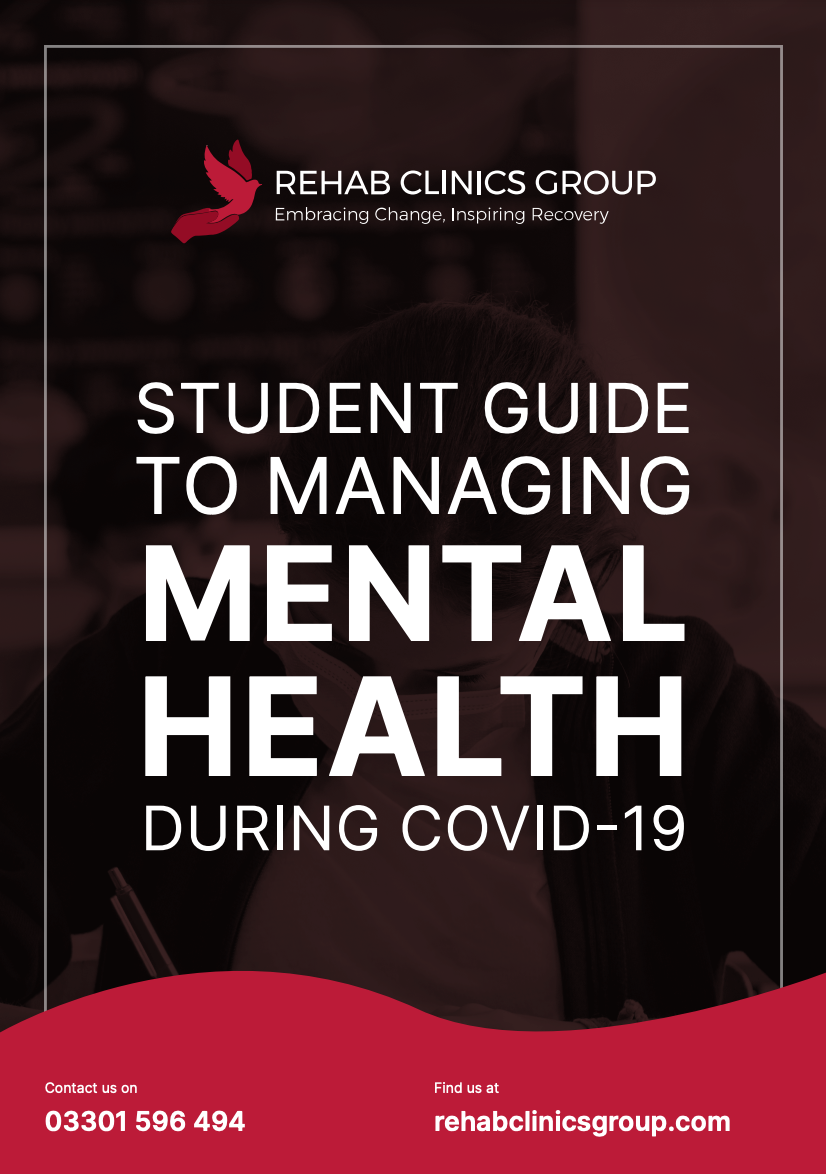
Author: Rehab Clinics Group
Audience: Teachers
Languages: English
Geographical Scope: Regional
This guide aims to give students practical tips and guidance on what steps they should take to help improve their mental health and development.
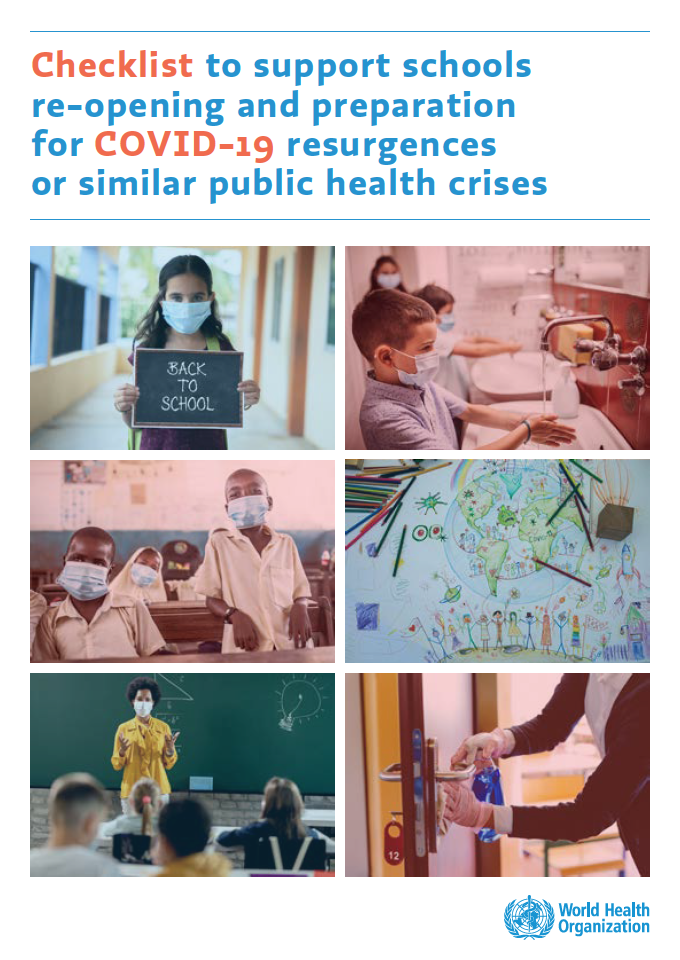
Author: World Health Organization
Audience: Policymakers, teachers, parents and caregivers.
Languages: English
Geographical Scope: Regional
The checklist was developed in accordance with the health-promoting schools principles and approaches.It highlights the importance of multi-level coordination (i.e. national, subnational and individual school levels) and both participatory and co-designed approaches among various stakeholders (e.g. school staff, teachers, students and parents). This approach aims to optimize compliance with public health and social measures based on social and cultural contexts, as described in Considerations for implementing and adjusting public health and social measures in the context of COVID-19.
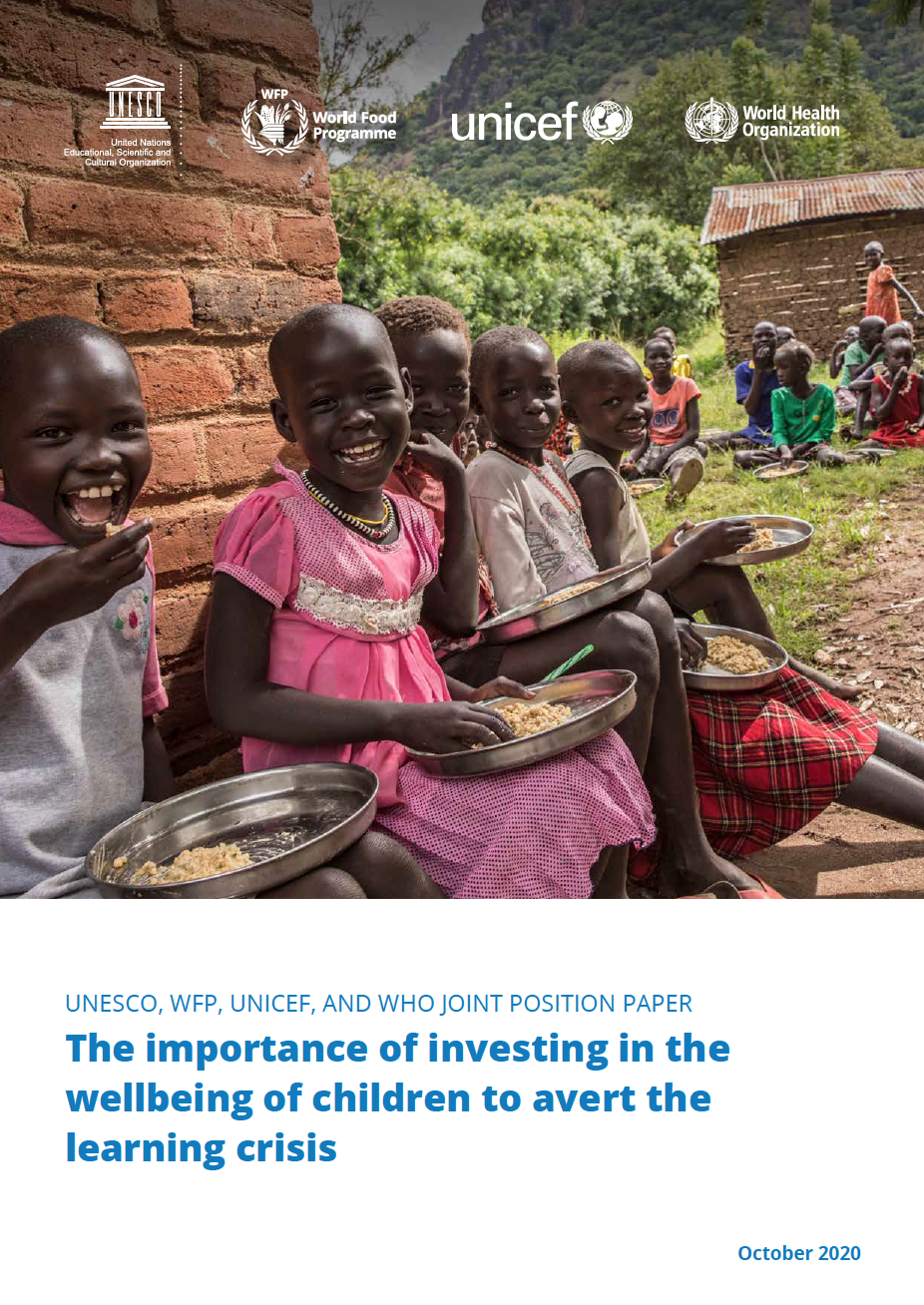
Author: UNESCO, UNICEF, WHO and WFP
Audience: Policymakers
Languages: English
Geographical Scope: Regional
This joint statement urges governments and the international community to uphold these commitments and to consider school health and nutrition programmes as a critical part of national response and recovery plans. You may find this helpful to advocate with government and other development partners to increase investment in these interventions.
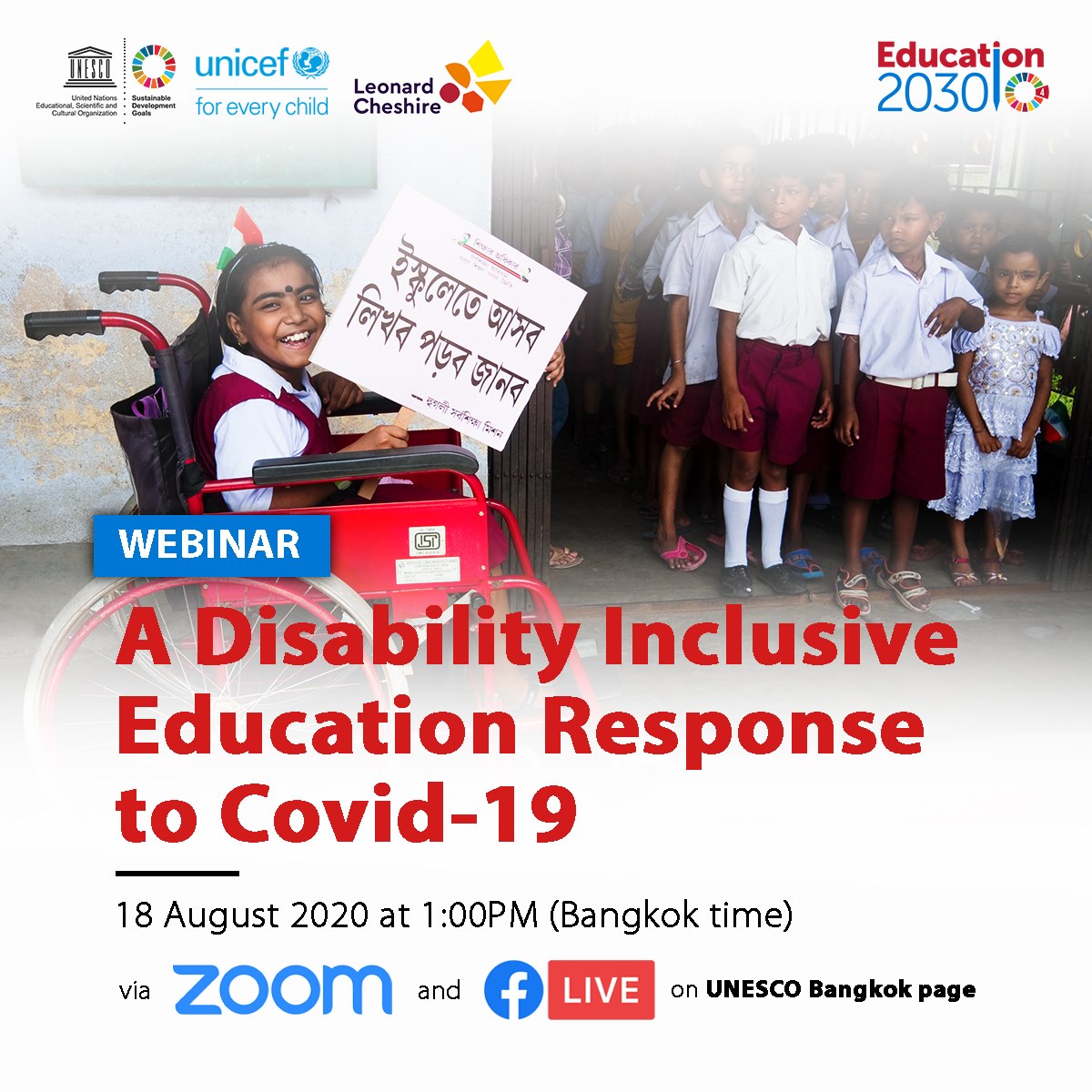
Author: UNESCO, UNICEF and Leonard Cheshire
Audience: Policymakers, Civil Society Organizations and Donors
Languages: English
Geographical Scope: Regional
This webinar aims to bring regional and national level education stakeholders including UNESCO, UNICEF, Civil Society Organisations, Organisations of Persons with Disabilities (OPDs), donor agencies together to understand how Covid-19 has impacted on the education of children with disabilities and discuss actions to ensure children with disabilities are able to return to school.
Resources
Webinar ppt - Leonard Cheshire
Webinar Questions and Responses – Teachers and teaching modalities
Webinar Questions and Responses – Monitoring, evaluations and data collection
Webinar Questions and Responses – Community Engagement
Other resources
Ensuring an inclusive return to school for children with disabilities

Author: UNESCO
Audience: Caregivers and Parents
Languages: English, Lao, Thai and Myanmar
Geographical Scope: Regional
Video: Staying safe and healthy when returning to school
This brief animated video reassures parents about their children returning to school as lockdowns end and how to prepare for the reopening of schools. Key messages are to continue to practice physical distancing and good hygiene and to keep informed about notices disseminated by education and health authorities.
ວິດີໂອ: ຮັກສາຄວາມປອດໄພ ແລະ ຮັກສາສຸຂະພາບເມື່ອກັບເຂົ້າໂຮງຮຽນ
ວີດີໂອພາບເຄື່ອນໄຫວສັ້ນໆນີ້ ເຮັດໃຫ້ພໍ່ແມ່ຜູ້ປົກຄອງໝັ້ນໃຈ ກ່ຽວກັບການກັບຄືນເຂົ້າໂຮງຮຽນຂອງລູກພວກເຂົາ ເມື່ອມາດຕະການໃຫ້ຢູ່ເຮືອນໄດ້ສິ້ນສຸດລົງ ແລະ ວິທີການກະກຽມ ສຳລັບການເປີດໂຮງຮຽນຄືນໃໝ່. ຂໍ້ຄວາມສຳຄັນນີ້ ແມ່ນເພື່ອສືບຕໍ່ປະຕິບັດການເວັ້ນໄລຍະຫ່າງດ້ານຮ່າງກາຍ, ມີສຸຂະອະນາໄມທີ່ດີ ແລະ ເພື່ອໃຫ້ຂໍ້ມູນແຈ້ງການຕ່າງໆທີ່ໄດ້ເຜີຍແຜ່ໂດຍຄະນະຮັບຜິດຊອບວຽກງານສະກັດກັ້ນ, ກັນການລະບາດ, ຄວບຄຸມ ແລະ ກຽມຄວາມພ້ອມຮອບດ້ານ ເພື່ອຕ້ານພະຍາດໂຄວິດ-19 ຂອງກະຊວງສຶກສາທິການ ແລະ ກິລາ ແລະ ກະຊວງສາທາລະນະສຸກ.
รักษาความปลอดภัยและมีสุขภาพที่ดีเมื่อกลับไปโรงเรียน
วิดีโอสั้นเรื่องนี้จัดทำขึ้นเพื่อช่วยสร้างความมั่นใจให้กับผู้ปกครองในการกลับไปโรงเรียนของบุตรหลานหลังจากการกักตัวได้จบลง และเสนอแนะวิธีเตรียมความพร้อมสำหรับการเปิดโรงเรียนอีกครั้ง ประเด็นสำคัญได้แก่ การรักษาระยะห่างทางสังคมและความสะอาดอย่างต่อเนื่อง พร้อมด้วยการติดตามข่าวสารที่เผยแพร่โดยหน่วยงานด้านการศึกษา และสาธารณสุข
ဗြီဒီယို၊ ေက်ာင္းၿပန္ တက္ခ်ိန္တြင္ အႏၠရာယ္ ကင္းကင္း ႏွင့္ က်န္းက်န္းမာမာ ေနထိိုင္ပါ။
ဤကာတြန္းရုပ္ရွင္ အတိုသည္ သြားလာကန္႕သတ္မႈမ်ား ေၿဖေလ်ာ႔ၿပီးေနာက္ ကေလးမ်ား ေက်ာင္းၿပန္တက္ခ်ိန္တြင္မိဘမ်ား၏ စိုးရိမ္ေသာကကို ေၿပေပ်ာက္ေစရန္ႏွင့္ ေက်ာင္းၿပန္ဖြင္႔ၿခင္းအတြက္ မည္သို႕ ၿပင္ဆင္ရမည္ကို သိရွိရန္ၿဖစ္သည္။ အဓိက မွာၾကားခ်က္ အေၾကာင္းအရာမ်ားမွာ လူခ်င္း ထိေတြ႕မႈ မရွိဘဲ ခပ္ခြာခြာေနရန္၊ တကိုယ္ေရ သန္႕ရွင္းမႈ အတြက္ လိုက္နာ ေဆာင္ရြက္ရန္ ႏွင့္ ပညာေရး နွင့္ က်န္းမာေရး အာဏာပုိင္မ်ား ၿဖန္႕ေဝေသာ သတိၿပဳရမည့္ အခ်က္မ်ားကို သိရွိရန္ ၿဖစ္သည္။
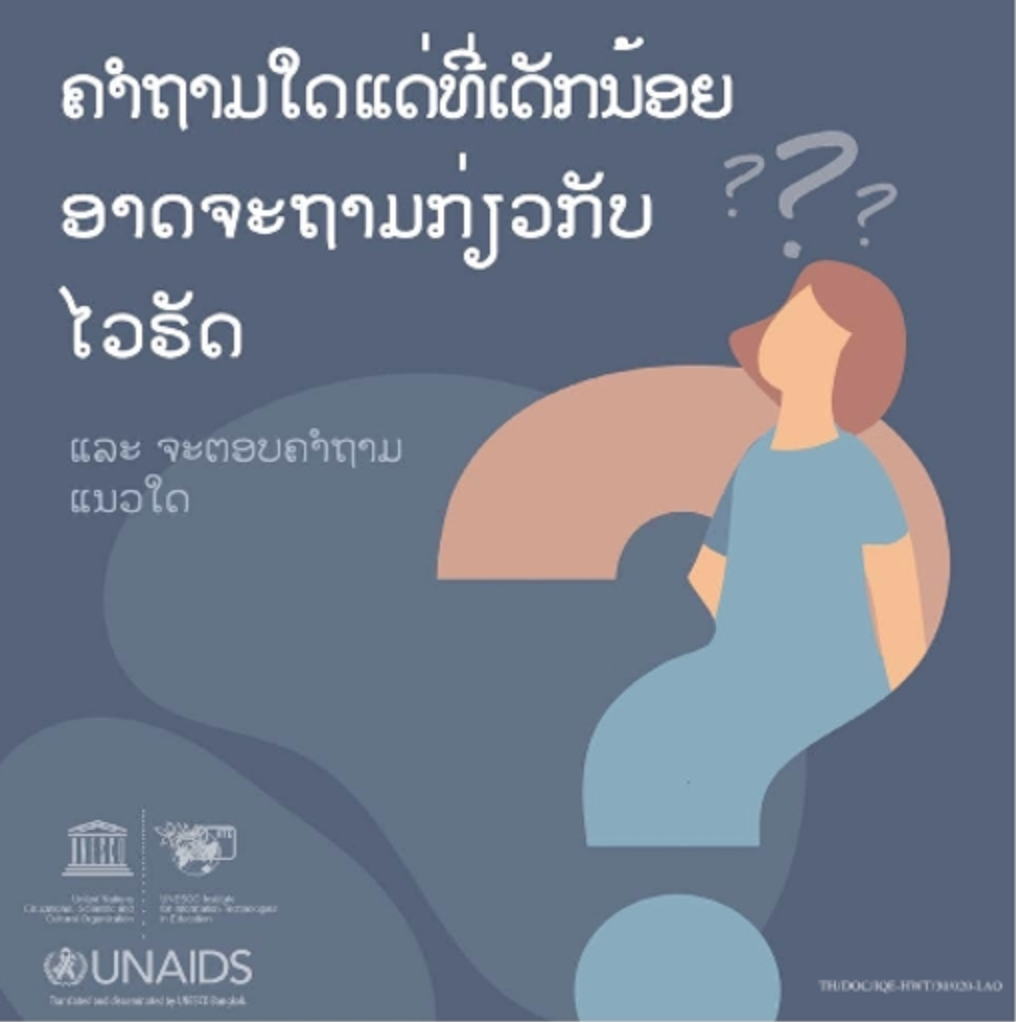
Author: UNESCO Institute for Information Technologies in Education, Joint United Nations Programme on HIV/AIDS
Audience: Teachers, Students, Caregivers and Parents
Languages: Lao
Geographical Scope: Lao People's Democratic Republic
The 65 cards summarize key expert recommendations on nine questions (each question has between 5-10 cards) about COVID-19, its influence on our everyday lives – work, studying, relationships with closest ones, physical and mental health – and ways to adapt to this new reality.
UNESCO Bangkok has supported the translation of the cards from English to Laos.
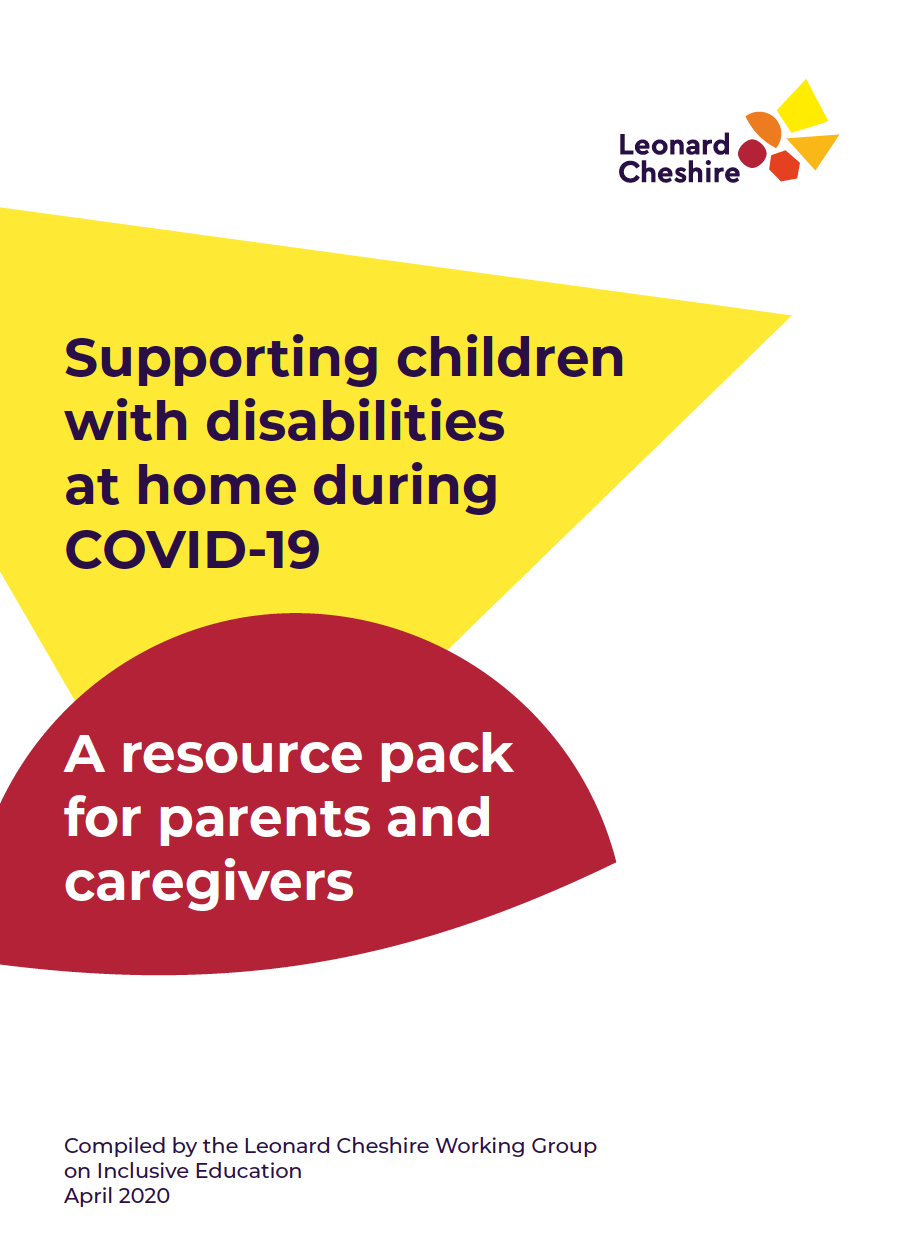
Author: Leonard Cheshire Working Group on Inclusive Education
Audience: Parents and Caregivers
Languages: English
Geographical Scope: Regional
This resource pack provides advice and guidance for parents and caregivers on how best to protect and support their children with disabilities during the COVID-19 outbreak.


